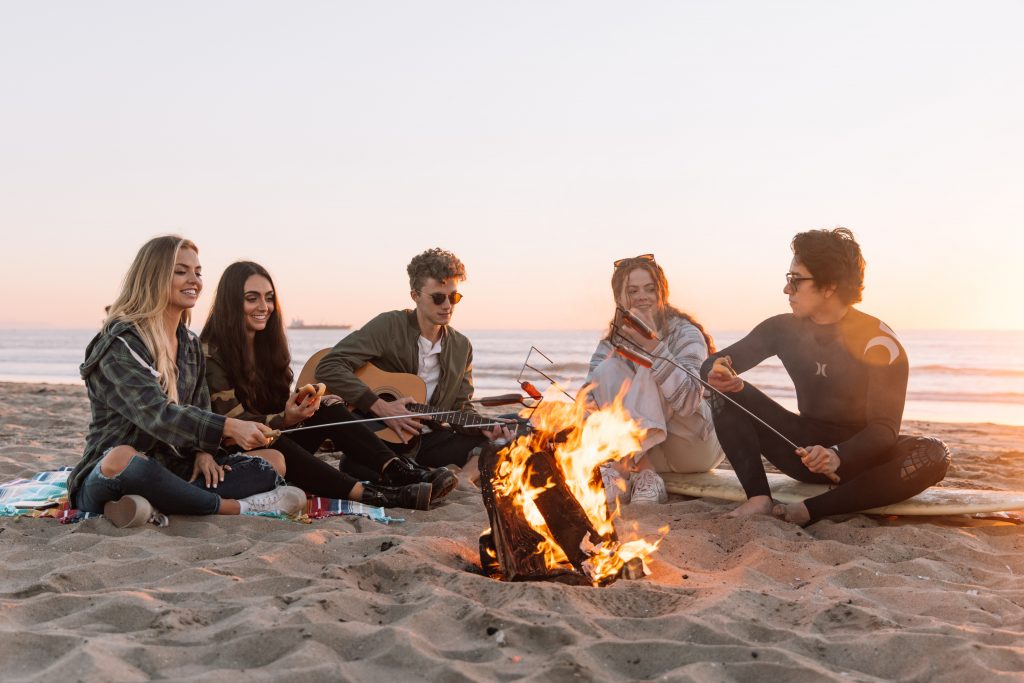With summer officially in full swing, and a lot of provinces starting to open up again following the COVID-19 Pandemic, it’s time to dust off our BBQs and outdoor event attire and make up for lost time (as long as it’s within your province’s restrictions). Here are seven tips to stay safe while still having fun this summer.
7 Ways to Stay Safe this Summer
-
Stay cool and hydrated
July and August are usually the hottest months of the year and it’s easy to fall victim to sun or heat stroke. Stay cool by being a shade seeker: bringing an umbrella with you, wearing a hat, or staying under the covered portion of a porch or patio. It’s equally as important to wear sunscreen as well as light and lose clothing.
Finally, don’t forget the water. Many times, we get caught up in festive food and drink options and forget to add in water. Aim for eight cups or more per day, depending on how hot it is outside or how much sweet or salty food you are consuming.
-
Be sun smart
When the heat rises, so does the UV index. That makes sunscreen even more important. Choose one with an SPF of 30 or higher and apply at least 15 minutes before heading out into the sun. Don’t forget the easy-to-miss areas, like your feet, ears, and scalp. Lips are something that’s often forgotten too, so be sure to add some SPF lip balm to your routine.
The UV index is highest between 11:00 am and 3:00 pm so it’s best to find shade or stay out of the sun completely during that time. Severe sunburns are something you want to avoid at all costs as they require medical attention and could result in lifelong effects, such as skin cancer. Mild sunburns can be treated safely at home with ointment or bandages. The full effects of a sunburn may not surface until up to 24 hours after being in the sun.
-
Practice heat safety
While sunburns can have major implications, heat stress can also cause multiple illnesses such as cramps, exhaustion, and heat strokes. Heat cramps are muscle pains and spasms that happen due to the imbalance of salt. These mostly affect the large muscle groups in our body such chest, arms, abdominals, and legs. When you experience heat cramps:
- Immediately stop all activities, and rest in a cool place
- Drink clear juice (ideally water)
- Have a banana if you have one on hand. Seek medical attention if cramps do not stabilize within an hour
Heat exhaustion is a build-up of several days of exposure to high temperatures. The symptoms of heat exhaustion are extreme weakness or fatigue, headache, irritability, and clammy moist skin with profuse sweating. If you notice these signs:
- Provide non-alcoholic beverages if conscious
- Move them to a shaded area
- Cool the victim by fanning, sponging with cool water, or applying ice packs.
Heat exhaustion could also lead to heatstroke. Heat strokes must be taken very seriously as they can be life-threatening. Watch out for drastically rising body temperature, dry and red patches on the skin with lack of perspiration, nausea, dizziness, strong and rapid pulse, seizure, loss of consciousness, or confused/irrational behavior. If you notice it in yourself, or in others you are with:
- Make every attempt to move the affected individual to a shaded area
- Cool off by fanning and applying ice packs
- Remove boots, socks, and any other heavy excess clothing
- Give water only if conscious
-
Consider the safety of your food
The heat not only has an impact on you but your food as well. Having a BBQ and thinking of throwing all the meat on one platter outside awaiting the grill? Think again. Keep raw meat and seafood cold until it’s ready to be cooked. Once it’s ready, keep it hot until it’s consumed, then put in the fridge once everyone is done, meaning, don’t let it sit out. Contaminated food or items that have sat out too long can lead to food poisoning.
-
Practice safety on the road
The summer months, especially holiday weekends, always bring more traffic, both on the road and on foot. Be mindful of your surroundings and be sure to drive the speed limit. It’s also important to ensure everyone is buckled up, there are no distractions, like cellphones, and that you’re not tired.
The number one tip though is the obvious: don’t drink (or do drugs) and drive. Both are illegal and could be fatal.
-
Be water smart
Similar to being road smart, safety on the water is just as important. Never drive a boat while under the influence, and always be aware of your surroundings. There aren’t as many rules on the water as there are on the road, so it’s important to have heightened awareness to ensure everyone safe and having fun. Pack extra towels and lifejackets and be sure to have lots of water and sunscreen on hand.
-
Practice firework safety
Summer and fireworks go hand-in-hand, but in order to avoid injury, it’s crucial to know how to use them. Only purchase fireworks from a reputable source, and don’t let anyone under 18 use them. Here are a few more tips:
- Only light one firework at a time and maintain a safe distance from it
- Never point or throw a firework at another person
- Never hold a lit firework in your hand
- If handling fireworks, be sure to wear protective eyewear
- Keep a bucket of water on hand in case of fire
- Never light fireworks indoors
- Soak both used and unused fireworks in water before throwing them away
At the end of the day, safety should be a top priority regardless of what your plans involve. For pool and pet safety, be sure to check out these tips.












